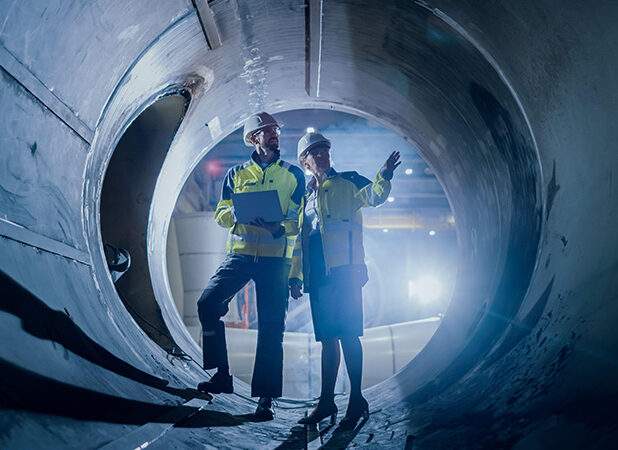What is 'Energy Transition'?
Energy transition, also known as the transition to a low-carbon economy, refers to the global shift from traditional, fossil fuel-based energy systems to sustainable and renewable sources of energy. It represents a fundamental transformation in the way we produce, distribute, and consume energy. This transition is driven by the urgent need to mitigate climate change, reduce greenhouse gas emissions, and secure a cleaner, more resilient future for generations to come.
Key Components of Energy Transition:
The energy transition encompasses several interrelated components, including:
a. Renewable Energy Sources: Renewable energy technologies such as solar, wind, hydro, geothermal, and biomass play a pivotal role in the transition. These sources harness the power of nature to generate clean and sustainable energy, reducing reliance on fossil fuels.
b. Energy Efficiency: Enhancing energy efficiency is a critical aspect of the transition. By optimizing energy consumption in industries, buildings, transportation, and appliances, we can reduce overall energy demand and decrease carbon emissions.
c. Decentralized Energy Systems: Shifting from centralized power generation to decentralized energy systems promotes local resilience, fosters energy independence, and facilitates the integration of renewable energy sources at a community level.
d. Smart Grids and Digitalization: Smart grids and digital technologies enable efficient monitoring, control, and management of energy systems. They facilitate the integration of renewable energy, enhance grid stability, and enable better demand response mechanisms.
Benefits of Energy Transition:
The energy transition offers a multitude of benefits, including:
a. Mitigating Climate Change: By reducing reliance on fossil fuels and increasing the share of renewable energy sources, the energy transition helps mitigate climate change by curbing greenhouse gas emissions.
b. Enhancing Energy Security: Diversifying the energy mix through renewable sources reduces dependence on finite fossil fuel reserves and enhances energy security.
c. Creating Jobs and Economic Growth: The transition to a clean energy economy generates employment opportunities across various sectors, fosters innovation, and drives economic growth.
d. Improving Public Health: The reduction in air and water pollution associated with fossil fuel combustion improves public health outcomes, leading to reduced healthcare costs and a better quality of life.
Challenges in Achieving Energy Transition
Despite the numerous benefits, the energy transition also faces several challenges:
a. Infrastructural Constraints: Upgrading and expanding the energy infrastructure to accommodate renewable energy sources can be costly and time-consuming.
b. Technological Innovation: Continuous research and development are essential to advance renewable energy technologies, improve efficiency, and drive down costs.
c. Policy and Regulatory Frameworks: Effective policy frameworks, supportive regulations, and incentives are necessary to accelerate the energy transition and attract investments in renewable energy.
d. Social Acceptance and Transition Planning: Ensuring a just and equitable transition for communities and industries heavily dependent on fossil fuels is crucial for social acceptance and long-term success.
Role of Renewable Energy Sources
Renewable energy sources play a pivotal role in driving the energy transition. Let’s explore some of the key renewable energy technologies:
a. Solar Energy: Solar power harnesses the energy from the sun through photovoltaic (PV) panels or concentrated solar power (CSP) systems. It offers vast potential for electricity generation, especially in regions with abundant sunlight.
b. Wind Energy: Wind turbines convert the kinetic energy of the wind into electricity. Wind power is a rapidly growing sector, with offshore wind farms becoming increasingly prevalent due to their higher wind speeds and larger capacity.
c. Hydroelectric Power: Hydroelectric power generates electricity by harnessing the energy of flowing or falling water. It is a mature technology and accounts for a significant portion of renewable energy generation globally.
d. Geothermal Energy: Geothermal power utilizes the heat stored beneath the Earth’s surface to generate electricity or provide direct heating. It is a reliable and consistent renewable energy source.
e. Biomass Energy: Biomass energy involves using organic materials, such as wood pellets, agricultural residues, or dedicated energy crops, to produce heat, electricity, or biofuels. It offers a versatile and renewable energy option.
f. Tidal and Wave Energy: Tidal and wave energy technologies convert the energy from ocean tides and waves into electricity. Although still in the early stages of development, they show great potential for generating clean and reliable power.
Conclusion
In conclusion, the energy transition represents a fundamental shift towards a sustainable and clean energy future. By embracing renewable energy sources, enhancing energy efficiency, and leveraging technological advancements, we can mitigate climate change, enhance energy security, create economic opportunities, and improve public health. This comprehensive glossary page has provided you with a valuable overview of the energy transition, its components, benefits, challenges, and the role of renewable energy sources. Stay informed, be part of the change, and join the global movement towards a greener and more sustainable world.
Frequently asked questions
Why is energy transition important?
Energy transition is crucial for several reasons. Firstly, it helps mitigate climate change by reducing greenhouse gas emissions and dependence on fossil fuels. Secondly, it enhances energy security by diversifying the energy mix and reducing reliance on finite resources.
What are the main challenges in achieving energy transition?
Energy transition faces various challenges. Infrastructure constraints, such as upgrading grids and building new energy facilities, can be costly and time-consuming. Technological innovation is necessary to improve the efficiency and cost-effectiveness of renewable energy sources.
How does renewable energy contribute to the energy transition?
enewable energy plays a vital role in the energy transition. Sources like solar, wind, hydro, geothermal, and biomass offer sustainable alternatives to fossil fuels. They reduce carbon emissions, promote environmental sustainability, and enhance energy security.






